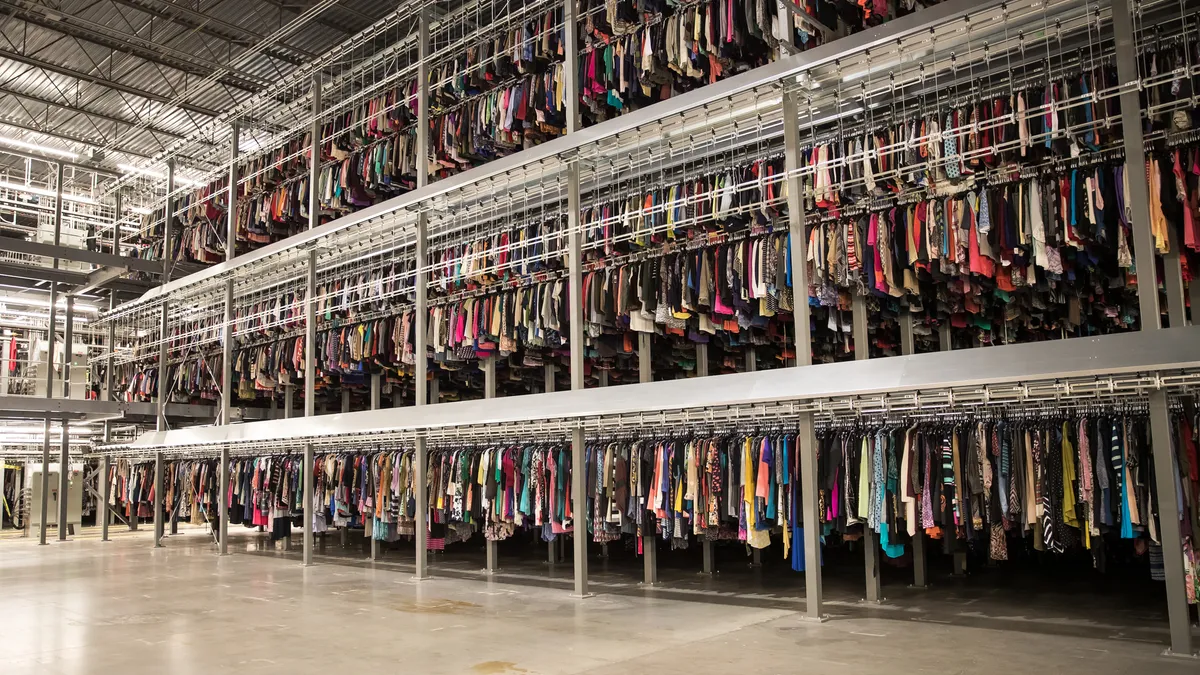Dive Brief:
- ThredUp on Tuesday announced that it will open a flagship distribution center in the Dallas area, according to a company press release.
- The four-level facility will store up to 10 million items, thereby expanding the company's item capacity by 150%. The secondhand retailer is expecting to invest $70 million in capital for the new distribution center.
- The retailer expects to start processing items in the new center in the second quarter of 2022 with an initial capacity of 500,000 items.
Dive Insight:
Upon opening, ThredUp's new flagship distribution center is expected to be the company's largest and most automated distribution center to date.
The 600,000-square-foot facility will allow ThredUp to scale its operations as the demand for secondhand apparel continues to grow, according to the company.
"ThredUp's newest distribution center underscores our relentless investment in the technology and software that powers our network and enables us to deliver resale at unparalleled scale," co-founder and CEO James Reinhart said in a statement.
The new facility will have 300 employees upon opening, but eventually will create 2,000 jobs, according to the company. The jobs are becoming available during a time when retail companies have reported challenges finding enough workers to meet demand. A looming federal mandate on COVID-19 vaccines could make hiring goals even more difficult to attain.
Secondhand apparel has been an exceptionally hot market recently, with nearly 53 million Americans reselling apparel last year, according to ThredUp research. The market segment is forecast to reach $77 billion in five years, which will exponentially outpace traditional apparel sales.
ThredUp, which operates its own resale website, also provides resale-as-a-service operations for other retailers. The company has partnered with companies like Macy's, J.C. Penney, Fabletics and Madewell to create resale opportunities at scale.
"With expanded item capacity and automation capabilities, ThredUp is accelerating its ability to unlock massive amounts of supply and building the backbone for resale on the Internet for our customers and [retail as a service] clients," Reinhart said.
















